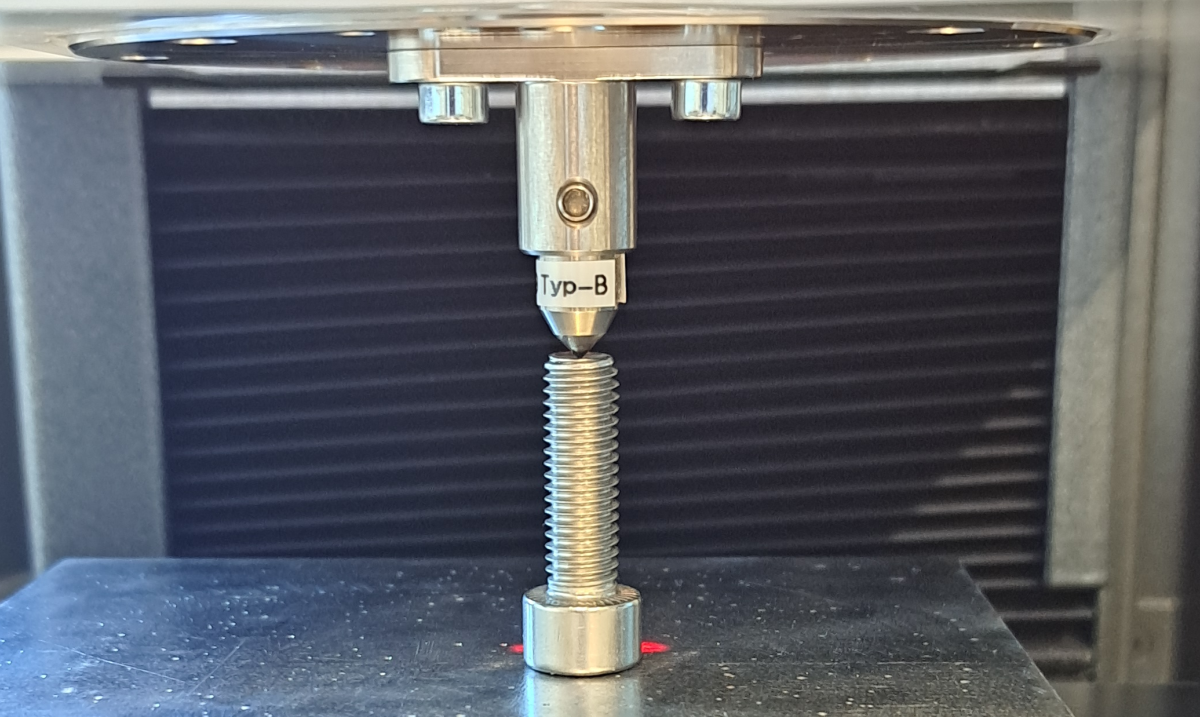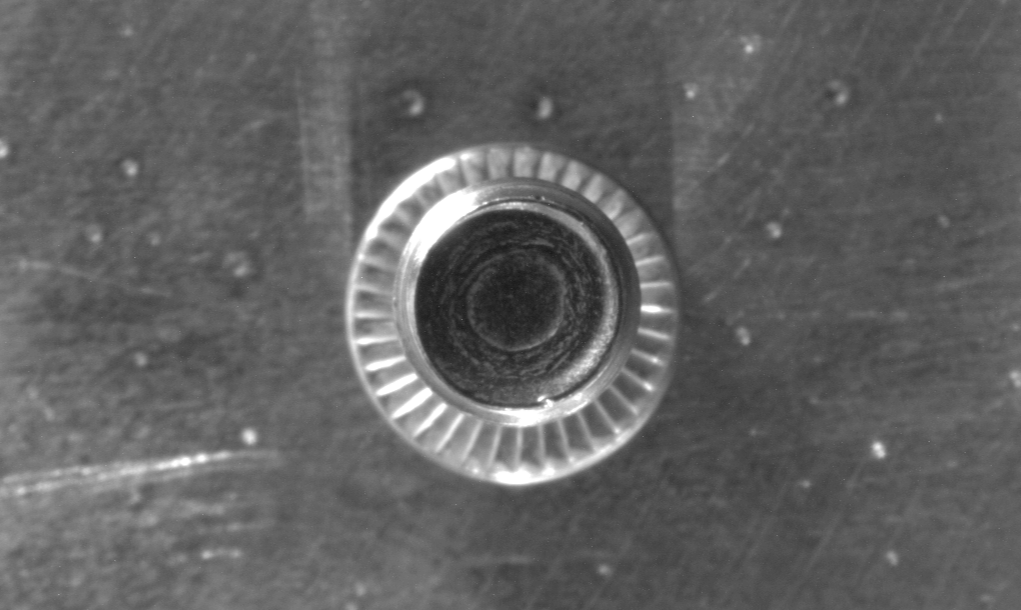
Mechanical Testing of Screws – Non-destructive Strength Analysis
Traditionally, mechanical testing of screws to determine strength values has been destructive. Screws of various types are produced according to standardized strength classes – a key quality feature for safe connections in technical applications. Tensile tests are commonly used to determine parameters such as yield strength (Rp0.2) and tensile strength.
However, conventional testing methods often reach their limits with small screws: the samples are difficult to handle, the test setup is complex, and the screws are no longer usable afterward. Hardness testing can be an alternative, with some values being convertible to tensile strength through empirical formulas.
Testawell offers an innovative solution for the non-destructive mechanical testing of screws. Using a standardized indentation method (DIN SPEC 4864), precise micro-indentations are applied to determine mechanical properties such as yield and tensile strength – without impairing the screw's functionality. The tested screws remain fully functional.




Insights into Screw Testing
Overview of the following sections:Results
This method enables fast, reliable, and non-destructive testing – ideal for large-scale production, small screws, or fully automated testing processes. Long wait times and scrap parts are a thing of the past.
Below is an example of a test on a stainless steel screw. The averaged stress-strain curve is based on four indentations. The derived mechanical properties:
Yield strength (RIp0.2): 1211 MPa
Ultimate tensile strength (RIm): 1250 MPa



Benefits
- Non-destructive testing: Screws can be tested for mechanical properties without being damaged or impaired in function.
- High testing speed: Enables efficient inspection of large batches – perfect for mass production or 100% inspection.
- Reusability: The indentations are only about 35 µm deep, meaning the screws can be reused without issue.
- Cost and time efficiency: Avoiding destructive testing and enabling reuse significantly lowers material and process costs.
- Precise strength determination: Yield and tensile strength are measured directly and reliably on the actual part – no conversions, estimates, or destructive tests required.
Challenges of Conventional Testing
- Complex and costly: Especially for small screws, traditional tensile testing involves high effort and expenses.
- Screw destruction: After traditional tests, the screw is unusable – a costly issue, particularly for high-value fasteners.
- Limited speed: Conventional methods are time-consuming – a disadvantage for high-volume or 100% inspection processes.
Technical Features and Unique Selling Points
- Non-destructive testing of small screws: The indentation process leaves only minimal marks that do not affect functionality.
- High precision: Direct strength evaluation on the actual part without elaborate lab setups.
- Automation-ready: The process can be fully automated – increasing throughput and reducing manual effort.
- Highly adaptable: Compatible with various screw types and metallic materials.